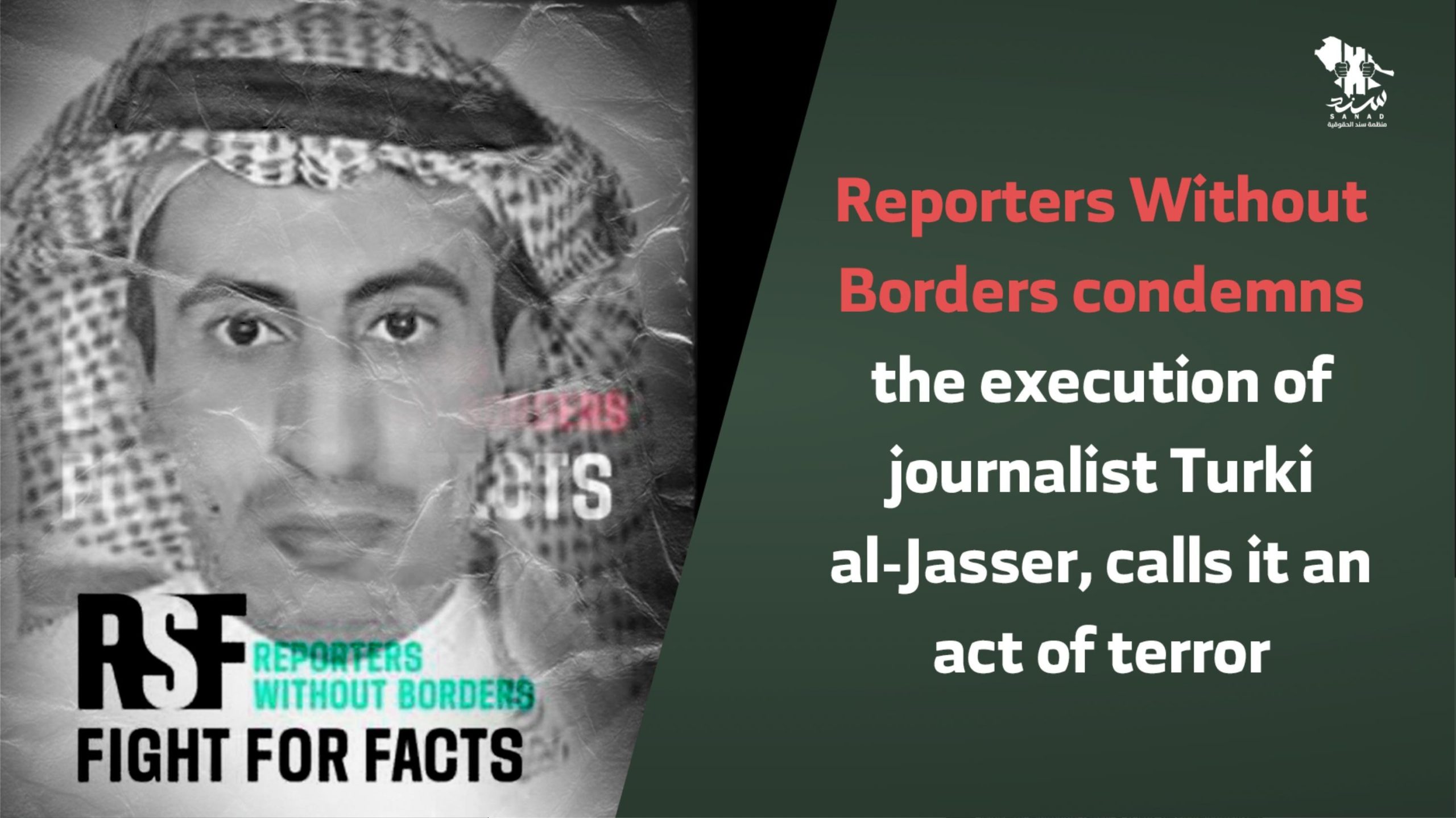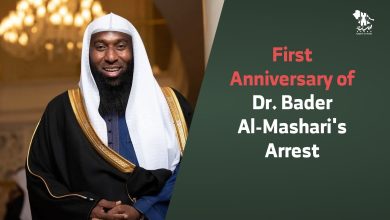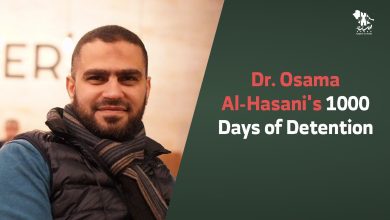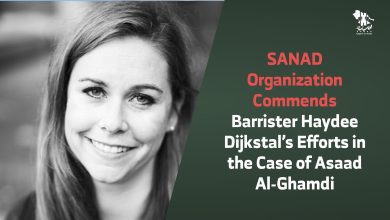
Reporters Without Borders condemns the execution of journalist Turki al-Jasser, calls it an act of terror
A Bloody Turning Point in the Record of Media Repression: Saudi Arabia Executes the First Journalist Under Mohammed bin Salman’s Rule
Reporters Without Borders (RSF) strongly condemned the execution of Saudi journalist Turki al-Jasser on June 14, 2025, after seven years of arbitrary detention. The execution was carried out based on unfounded charges of terrorism and high treason related to his online posts. Al-Jasser is the first journalist to be sentenced to death and executed under Mohammed bin Salman’s rule.
In its statement, RSF described the execution as an “act of terror” by the Saudi authorities, calling it a dangerous turning point in the Kingdom’s treatment of journalists and activists. RSF urged Riyadh’s international allies to take firm action, including sanctions, to stop this repressive regime targeting journalists.
Turki al-Jasser, founder of Al-Mashhad Al-Saudi (“The Saudi Scene”), had regularly covered sensitive topics such as women’s rights and the Palestinian cause. He was accused by the authorities of being behind the anonymous X (formerly Twitter) account “Kashkool,” which exposed corruption and human rights abuses linked to members of the royal family.
According to Amnesty International’s 2024 report, Saudi Arabia is among the world’s top three executioners after China and Iran, with a sharp rise in repression against journalists and activists. Since the beginning of 2025, at least 88 executions have been documented.
Anne Bocandé, RSF Editorial Director, stated:
“The execution of Turki al-Jasser marks a new and appalling milestone in Saudi Arabia: it is the first time in the kingdom’s history that a journalist was sentenced to death and executed following a judicial process. His death reminds us of the horrific murder of Jamal Khashoggi in the Saudi consulate in Istanbul, a crime for which a UN report found the Saudi state responsible.”
“The killing of Turki al-Jasser is yet another alarming sign of the kingdom’s brutal crackdown on dissent, and raises grave concerns for the safety of journalists still imprisoned in Saudi Arabia. The Kingdom’s allies must apply maximum pressure, including sanctions, to end this reign of terror against journalists. Silence in the face of such a crime amounts to complicity in killing journalism and press freedom globally.”
Saudi security forces raided al-Jasser’s home on March 15, 2018. He was abducted and taken to an unknown location, with his electronic devices seized. He was later transferred to the high-security Al-Ha’ir prison near Riyadh.
For months, his detention conditions were so opaque that in November 2018, several media outlets and human rights groups, including RSF, reported his presumed death under torture.
About six months after his arrest, the international community’s attention was drawn to the dangers faced by Saudi journalists when Jamal Khashoggi was murdered on October 2, 2018, inside the Saudi consulate in Istanbul.
According to RSF, at least 18 journalists are currently imprisoned in Saudi Arabia, which ranks 162nd out of 180 countries in RSF’s World Press Freedom Index.






